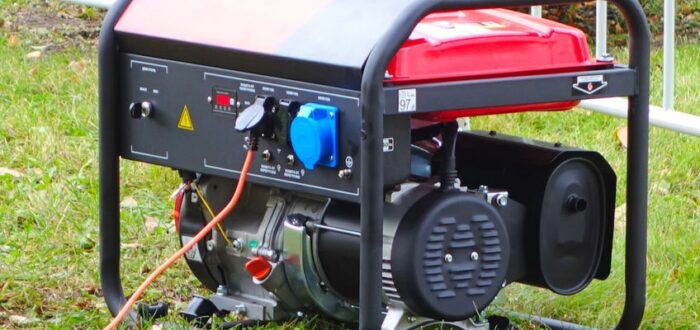A generator can be a lifesaver. It can especially be an invaluable piece of equipment that comes in handy when electricity isn’t available at one’s home or place of businesses. Whether you prefer to use a permanent or portable generator, it’s important to follow safety precautions.
Using a generator properly goes beyond simply plugging it in. It’s vital to be knowledgeable about how to use a generator to avoid injuries or accidents. Misuse of generators can result in burns, injuries, and even life-threatening carbon monoxide poisoning. Carbon monoxide poisoning, in particular, is a common problem resulting from improper use of portable generators. If the levels are too high, carbon monoxide poisoning can be fatal. Thankfully, newer portable generator models have a built-in feature that will automatically power your generator down before the carbon monoxide can reach dangerous levels.
Whether your generator is permanent or portable, a new model or older, it’s important to follow safety precautions to ensure yours and your family’s safety. Here are some generator safety tips to follow.
Run your generator in an outdoor space
Many generator-related accidents and injuries stem from one common reason: carbon monoxide poisoning from generators used inside an enclosed space. Indoor spaces, such as your home’s garage or basement, can amass dangerous levels of carbon monoxide.
To ensure everyone’s safety, you need to run your generator in an outdoor space, at least 20 feet away from your home. Be sure to direct your generator’s exhaust away from the direction of your home. Also remember to keep it away from windows, doors, and vents, as these pathways can let carbon monoxide into your home. Running your generator inside your home with open doors and windows is still very unsafe, since carbon monoxide can still build up without you even knowing it. If possible, install CO alarms throughout your home. This will ensure that you’re aware in case of any accumulation of carbon monoxide.
Also, make sure your generator isn’t running in the rain. If your outdoor space doesn’t have a cover to keep the generator dry while it’s running, consider buying a tent or a canopy for your generator. This way, you can keep it shielded and well-ventilated at all times.
Store your generator in a dry place
Generators should be kept dry at all times. They can’t be used in wet conditions, and you can’t operate your generator with wet hands or you might get electrocuted. Follow all safety precautions when using a generator. It’s best to plug your appliances directly into your generator. If you wish to use an extension cord, be sure to use the one that’s heavy-duty. The capacity of the extension cord should be equal or greater than the sum of the load of your connected appliances. Take time to inspect the cord to make sure it is free of cuts. Better yet, consider installing a transfer switch.
A transfer switch connects the generator directly to your circuit panel. This provides power to your hardwired appliances so you can avoid the safety risk that comes with using extension cords.
Let your generator cool down before refueling
If you’re using a gas-powered generator, it is best to let it cool down before refilling its tank. This is an important generator safety tip to keep in mind because refueling your generator while it’s still hot can be dangerous. Gasoline can ignite when spilled on hot engine parts. Turn your generator off and wait until it’s cooled to reduce the risk of burns.
Store your extra gasoline properly
People who rely on their generators for an extended period of time typically stock up on extra gasoline. If you’re storing extra fuel for your generator, be sure it’s kept in a container that is placed in a cool and well-ventilated area. Make sure your extra gasoline isn’t kept inside your home or anywhere near potential sources of heat or fire.
Choose a generator with built-in CO Safety technology
Newer generator models come with built-in devices that can detect harmful levels of carbon monoxide. This feature will automatically shut down your equipment if your carbon monoxide levels are too high. If you plan to invest in a new generator, it is best to opt for a model that includes this life-saving technology.
Whether or not you use your generator frequently, the importance of following safety precautions when using generators is vital. Ensure yours and your family’s safety by following these generator safety tips.
Similar to generators, lawn mowers and snowblowers also have small engines that power up these pieces of equipment. For anything you need to tackle small equipment repair issues specific to your lawnmower or snowblower, Greg’s Small Engine is the name you can trust. Give us a call for more information.






















